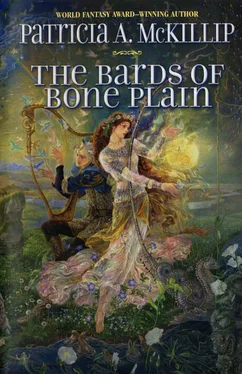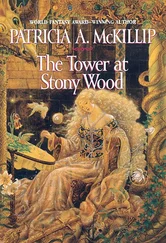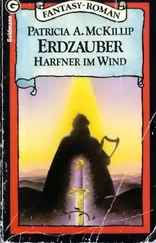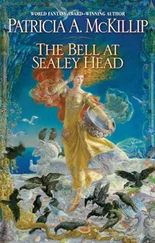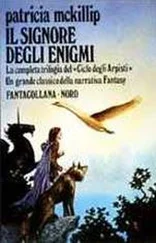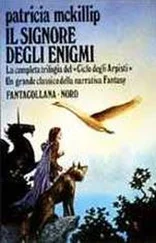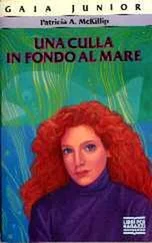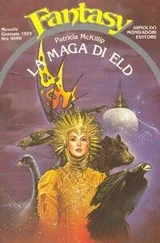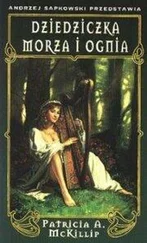Sophy, fully dressed and wrestling with a skintight glove as she came upon the yawning Phelan in the living room, left a kiss somewhere in the vicinity of her son’s jaw and asked briskly, “Have you found your father?”
“Am I looking for him?”
Sophy nodded vigorously. Phelan had inherited her pale hair and gray eyes, even her charming smile, but not, he realized early, her stubbornly temperate disposition, which provided a formidable barrier to any questions about Jonah’s behavior. “I told you, didn’t I?”
“No.”
“Oh, dear. Well, you must find him for Lord Grishold’s supper—” She stopped, loosed a chuckle. “Not that the duke is planning to take a knife and fork to him, but we must all attend. The king wrote a tiny note on our invitation that he expressly desired Jonah’s presence, to finish a certain conversation.”
“When?”
“When, what, dear?”
“The supper?”
“Oh. In a day or two—I’ve forgotten—” She smiled at him brightly, patted his cheek. “Just find him, Phelan. You’re always so good at it. The invitation is around here somewhere. I must rush away. We are knitting socks today for Caerau’s poor, and then Ursula Baris’s cook’s grandmother will teach us how to divine the future in a bird’s nest.”
She left Phelan wordless, awake at last. He moved finally, stepped toward the cluttered desk in her study to look for the invitation, then veered abruptly at the door. It didn’t matter: clean, fed, his pockets clinking again, Jonah might be anywhere in the city. Phelan would either stumble across him in time for the occasion or not. He had a paper to write; his father could wait.
He did turn from his chosen path, walking across Dockers Bridge again for a quick search around the dig site, before he buried himself in the school library. In the clear morning light, the desolation lost its mystery and became simply the sad ruins of an earlier century, walls slumped into one another, charred window frames staring empty-eyed at the colorful buildings across the river, ruined warehouses and broken pilings haunting the abandoned waterfront. Fire had gutted it; everyone had gone to more prosperous parts of the city; no one had found a need to rebuild the waste. Still, in the eerie silence, Phelan heard voices, brisk and cheerful, with no visible owners and seemingly from underground.
He walked to the edge of Jonah’s latest project and looked down at the top of a head ascending. It was covered with a soft cloth hat; he couldn’t see the lowered face talking to someone below.
He did recognize the voice.
“Princess Beatrice,” he said, and the head came up abruptly. She smiled at him; the hat slid, its tie catching at her throat, loosing a burnished curl or two from her rigorously pinned hair.
“Phelan.” She accepted his hand briefly, politely, as she stepped off the ladder, then let go and beat a cloud of dust from her clothes. “Sorry,” she added as she stepped back, laughing. “I’m not fit for civilized company after I’ve been down here. Are you looking for your father?”
“Yes. Have you seen him?”
“He was here earlier for just a few moments; then he went off.”
“Do you have any idea where?” he asked without hope.
She pulled pins out of her hair, shook it again as it fell, releasing more dust. “I don’t.” She paused, thinking. Behind her, below ground, Phelan could hear the soft whisk of brushes, the cautious tink of a pick, an occasional word. The princess’s calm eyes shifted from Phelan’s face to the city beyond his shoulder. They were, he realized, the same inky blue as the asters growing out of a nearby midden. “I know he’s been asked to court, but that’s no help to you if that’s why you’re looking for him.” She turned abruptly, called down, “Does anybody know where Master Cle might have gone?”
There was a faint, ragged chorus of amusement; Phelan’s mouth crooked.
“Ah, well. I’ll find him. If you see him—”
“Yes, of course. I’m driving home now. Lady Hartshorn is giving a lunch for Lady Grishold that I couldn’t get out—I promised I’d attend. Can I drop you somewhere along the way?”
“Yes,” he said before he thought, then changed his answer reluctantly. “No. I should stay, look around here a little; it’s where I found him last. And I can spot him better on foot. I know a few of his favorite places.”
“If I do see him, can I give him a message?”
“Thank you, Princess. Just tell him we need him home.”
He sat at a table in the school library later, thinking idly of the encounter, then of Jonah, and then ruthlessly clearing his head to think of nothing at all. He gazed intensely at a sheet of paper, breath suspended, a word on the quivering point of his pen poised and waiting to fall. Monoliths of books and manuscripts rose around him. All were crammed with words, words packed as solidly as bricks in a wall, armies of them marching endlessly on from one page to the next without pause. He forced the pen in his tight grip a hairsbreadth closer to the paper so that the word stubbornly clinging to it might yield finally, flow onto the vast emptiness. Point and paper met. Kissed. Froze.
He sat back, breath spilling abruptly out of him, the pen laden with unformed words dangling now over the floor in his lax fingers. How, he wondered incredulously, did all those books and papers come into existence? In what faceted jewel of amber secreted in what invisible compartment of what hidden casket did others find that one word to begin the sentence that layered itself into a paragraph, that built itself into a page, that went on to the next page, and on, and on?
He straightened again, dropped the pen, reached randomly for beginnings from the piles around him.
“Does Bone Plain exist?” a recent paper inquired simply and succinctly. An older book introduced its argument murkily but more sonorously: “On the farthest horizon we can glimpse, back through time to the dawn of the five kingdoms, the place where history and poetry meet on Bone Plain.” Phelan snapped it shut, picked up another book, a thin, limp volume bound in fine leather. It began: “For centuries poets, bards, and scholars have run through rivers of ink arguing exactly which of the standing stones of Belden are also the standing stones of poetry enclosing the Three Trials of Bone Plain.”
He closed that one, put it back on its pile, and dropped his brow onto the stack, hoping without hope that the words he searched for would somehow seep through flaking parchment and antique leather into his brain. The library, oak floors carpeted with lozenges of light from the windows, tall mahogany bookcases, the priceless collection of scrolls and first editions donated by Jonah Cle installed under glass on various stands, was relentlessly sunny and dead quiet. Everyone else in the world had something better to do on that bright spring day than agonize over ancient history. Maybe his father was right, he thought resignedly. Everything had been said. There was nothing more to say, which was why he could not find a single word to add to the subject.
He got up finally, examined his father’s collection. Jonah had evidently considered the subject so tiresome that he gave away everything that had fallen into his hands. Phelan found, among other things, the earliest version of the tale written on parchment instead of stone, as well as an essay about Nairn by an obscure scholar who seemed to think that the bard, after failing the trials, was still wandering the earth a thousand years later. Phelan summoned the archivist from the depths of the library. The archivist, who would have thrown himself bodily across the doorway to keep the priceless manuscripts from leaving, said finally, in the face of Phelan’s desperation, that he could take them out as long as his father didn’t see them.
Читать дальше
